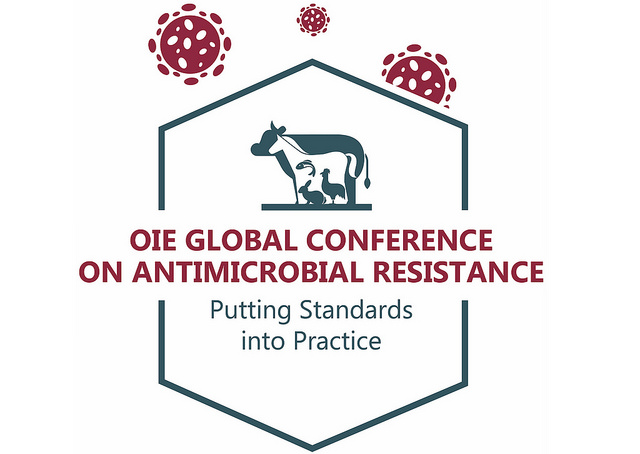
Speaking in front of official representatives from OIE’s 182 Member Countries, the ministerial panel – which included Ministers and Vice Ministers from Germany, Japan, Norway, Thailand, Botswana, Senegal, Serbia and Uzbekistan – spoke openly about their own countries’ challenges and successes, as well as the particular issues faced by developing countries.

According to the most recent data collected by OIE, as of 2015, 64 countries had regulations in place against the use of antimicrobials for use in growth promotion. There is an international consensus that such use should be phased out, and countries should immediately restrict use for growth promotion purposes of those antibiotics that are listed by the WHO as Highest Priority Critically Important Antibiotics for human medicine.
The OIE is pioneering a comprehensive data collection tool through the OIE Database on Antimicrobial Agents Intended for Use in Animals. The database compiles relevant data about Member Countries’ use of antimicrobial medicines in animal health. In 2017, 84% of the 182 OIE Member Countries provided data on their use of antimicrobials in animals, proof of the strong involvement of countries in the fight against antimicrobial resistance.
The Second OIE Global Conference comes at a critical juncture in the fight against antimicrobial resistance. Member Countries have demonstrated an impressive commitment to development of national capacity in this effort in line with international standards. To build upon and further inform this momentum, the Second OIE Global Conference will bring together OIE Delegates and OIE National Focal Points for Veterinary Products, as well as experts, professionals, policy makers, international organisations and donors, with the aims to increase understanding of the current global situation on antimicrobial resistance in animals, and to develop recommendations for future sustained control of AMR while ensuring animal health, animal welfare, veterinary public health, and food security. Particularly, it will provide a forum to examine how to best support Member Countries in continued fulfilment of the objectives of the OIE Strategy on Antimicrobial Resistance and the Prudent Use of Antimicrobials, and the Global Action Plan on Antimicrobial Resistance.
The conference will in particular:
- Inform on initiatives taken by the Tripartite and other international organisations involved in One Health projects to control AMR in humans, animals, plants, and the environment at national, regional and international levels;
- present an overview of the progress achieved since the first OIE Global Conference on the Responsible and Prudent Use of Antimicrobial Agents for Animals in 2013 on antimicrobial use in animals including the OIE global database on antimicrobial agents intended for use in animals;
- Promote implementation by all relevant stakeholders in OIE Member Countries of the OIE’s international standards and guidelines on the use of antimicrobial agents and antimicrobial resistance in animals, including the updated OIE List of Antimicrobial Agents of Veterinary Importance;
- Support the ongoing development of comprehensive surveillance and monitoring systems for antimicrobial use and resistance appropriate to different national and regional contexts;
- Encourage responsible and prudent use of veterinary antimicrobials in the field, including development of species-specific clinical guidelines, and engagement strategies for veterinarians and livestock producers;
- Promote access to high quality veterinary products worldwide and strategies to reduce dissemination of falsified and substandard products;
- Consider communication tools and interventions to generate key behavioural changes towards reducing use of antimicrobials in the field;
- Inform on the research and possible implementation of alternatives to antimicrobial agents;
- Discuss the development of guidance on the responsible and prudent use of antiparasitics;
- Encourage international solidarity in supporting the OIE and its Member Countries to effectively implement the OIE Strategy on Antimicrobial Resistance and the Prudent Use of Antimicrobials.
Monday October 29, 2018/ OIE.
http://www.oie.int




